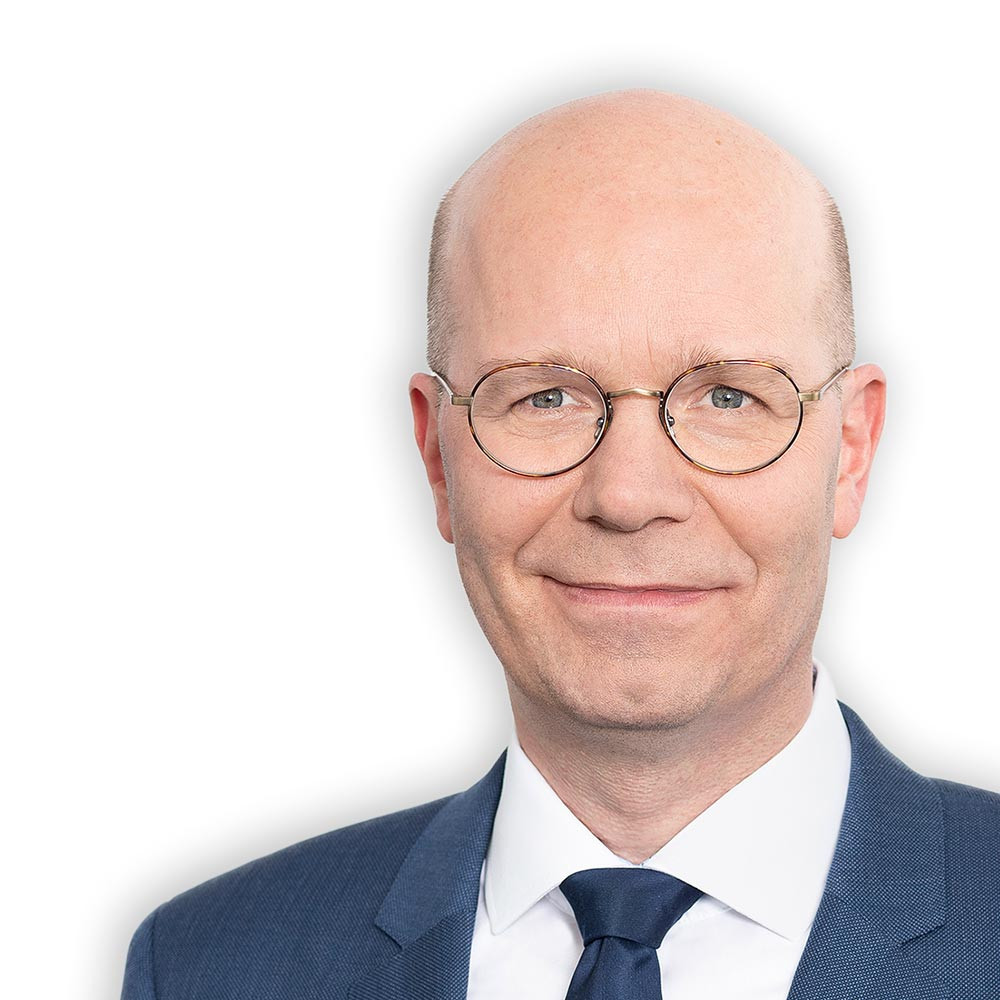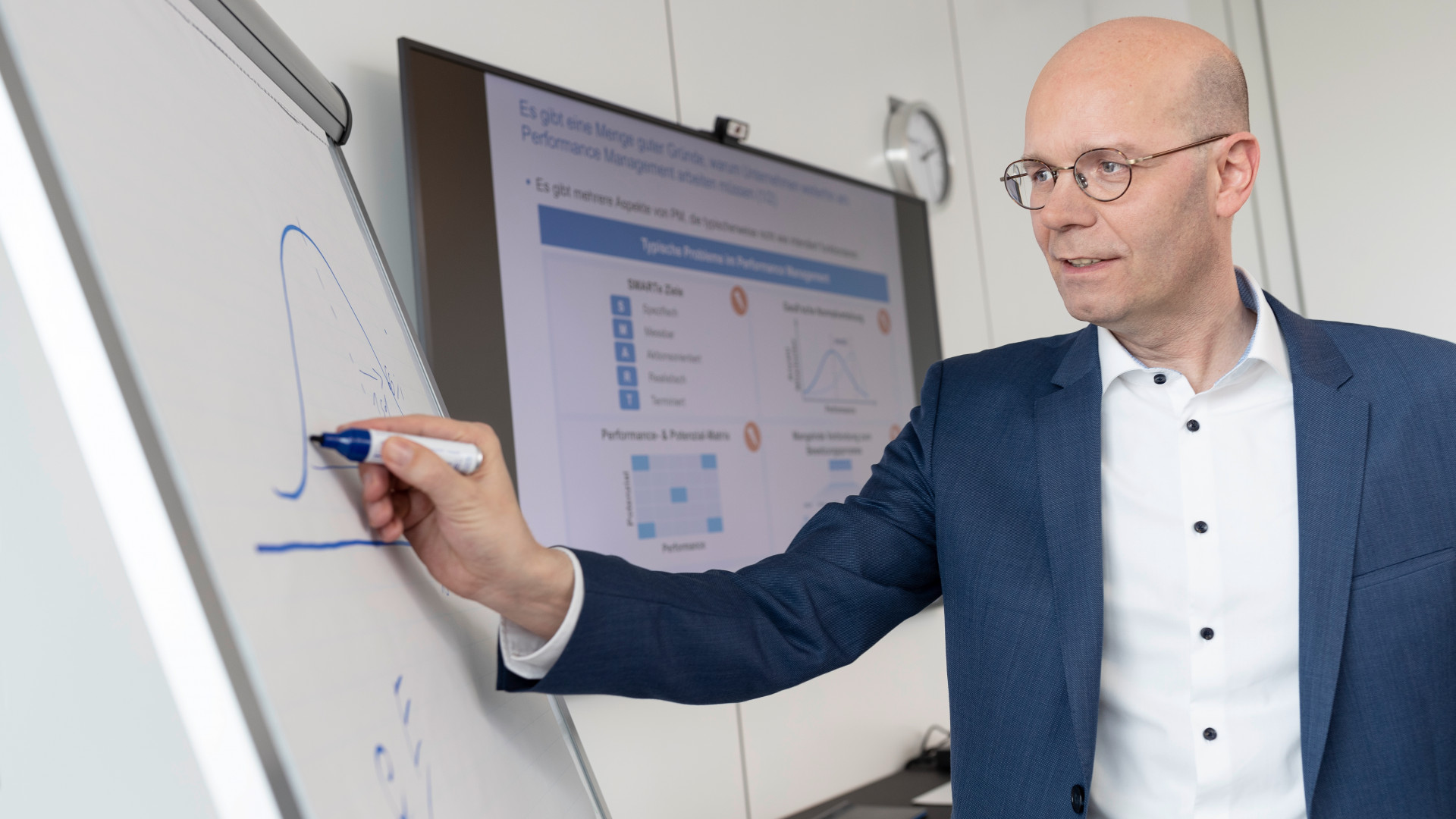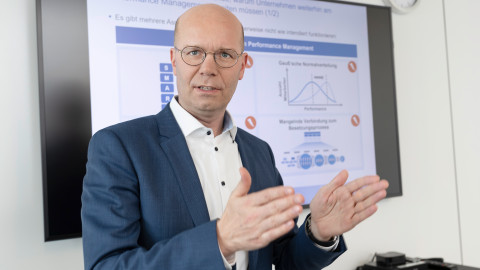COVID-19 and its economic consequences require businesses to reposition on an internal and external level, or at the very least to realign certain areas. During these unsettled times, HR has a central role to play in the implementation of often drastic measures – whereby the HR sub-disciplines themselves are experiencing a change in tasks and their prioritization within a very short space of time. hkp.com spoke to the hkp/// group expert Frank Gierschmann about the current challenges facing talent management within the corona context.
Mr Gierschmann, what role does HR and talent management play in times of social distancing?
Frank Gierschmann: Naturally a very important one! Without going into every individual challenge here, in the end it's about HR ensuring the health of employees and the company itself by setting the right course. For some companies, it's about survival. And talent management in particular has many competencies, which are needed and are in strong demand during the current crisis.
What are these competencies?
Frank Gierschmann: Knowing where, how many and what types of talents are needed, available and can be developed within a company is in itself essential. We are facing uncertain times in which some companies will have to reposition or realign certain parts of the organization – this is where talent management needs to provide the right solutions. However, this doesn’t mean just holding on to what has been tried and tested, but also using the crisis to critically assess established talent tools.
How is the COVID-19 pandemic impacting talent management?
Frank Gierschmann: In many ways. For example, human resource managers are currently reporting situations where managers are going beyond a defined professional role, where authentic behavior is coming to light. All of a sudden it is becoming evident who is good at moderating decisions or is able to adopt different perspectives, who communicates well within the organization and who, in terms of tone and content, can also meet the demands of public stakeholders.
So the crisis is amplifying strengths?
Frank Gierschmann: You could say that. Many leaders are meeting the special challenges of the task at hand: They are stepping up and taking responsibility, and often this isn’t part of their usual role.
But not all employees shine in this type of situation ...
Frank Gierschmann: Right, that’s the flip side. There are also managers who are completely withdrawing due to the pressures of this crisis. They make themselves unavailable or don't act appropriately. They are indecisive, cynical in their arguments and don't take responsibility.
So the crisis is also a catalyst for separating the wheat from the chaff when it comes to matters of management?
Frank Gierschmann: The crisis creates situations where individuals need to prove themselves and where leadership competencies are put to the test. If the crisis was a form of assessment, we would have a new tool to identify qualities in crisis mode.
Like a resilience test under real conditions?
Frank Gierschmann: Resilience is becoming evident through the crisis, both as a popular buzz word and as an excellent identifier for potential high performers. But in terms of crisis capability, there is an even more noticeable trend.
An increase in the type of resilient employee, who guarantees stability and the ability to act under difficult conditions?
Frank Gierschmann: Science actually has an “anti-fragile” category within the classification of typologies in response to pressure. It states that people who are already resilient become even stronger under pressure. The complete opposite behavior of this type is aptly termed “fragile”: i.e. employees who are overwhelmed in comparable situations, who lose direction and are afraid to make decisions.
So the pandemic is calling for anti-fragile talents, who become even stronger in a crisis environment?
Frank Gierschmann: It at least offers a major opportunity to identify them. Seen purely from a talent management point of view, this crisis presents the ideal environment for business driven action learning. Challenges do not have to be invented or artificially simulated. Consequently, entire groups of employees currently have the opportunity to show real-life action in a crisis environment.
And if they get this chance, they are already in a favorable position and not just listed in the talent pool as a statistic...
Frank Gierschmann: Talent managers should use arising opportunities to not only identify high performers and high potentials but also to actually instate and promote them in relevant positions. And this doesn’t just apply to those who are part of the talent pools previously mentioned, but also to those who are currently doing outstanding work for their company.
What are the priorities here?
Frank Gierschmann: It is important to question existing criteria when it comes to identification, the filling of positions and even to career management. New approaches shouldn’t be dismissed either. Formerly invisible talents, who are now acting in an anti-fragile manner during this crisis, should be able to grow in relevant roles.
So, talent management has a lot to do.
Frank Gierschmann: The current situation should be used to develop essential competencies for a dynamic environment. The crisis will hopefully be over in a while, although uncertainty in business will surely remain. And when it is over, some companies may already be able to operate with a new generation of managers.
Mr. Gierschmann, thank you for the interview!


